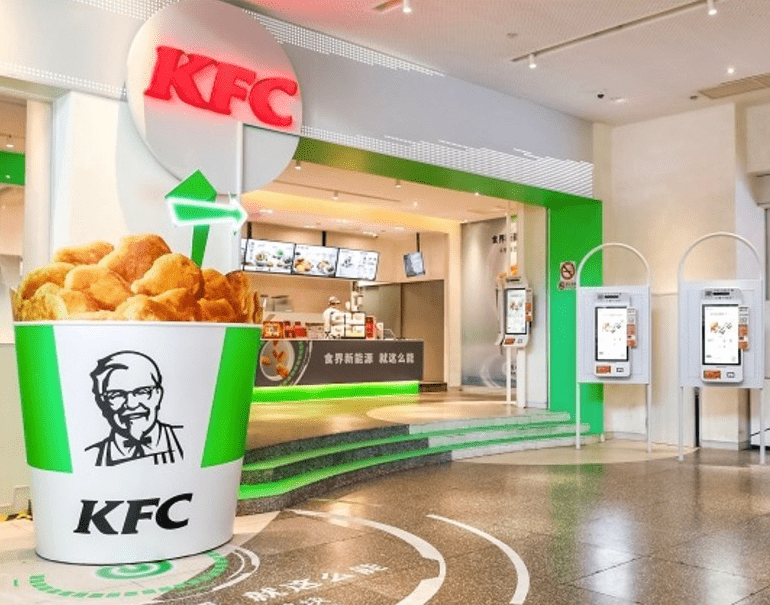From today, Chinese chicken lovers will be able to give plant-based protein products a try at KFC outlets in the country. US agribusiness giant Cargill is supplying the raw material, and its China entry comes as plant-based specialists Beyond Meat and Impossible Foods jostle for pole position in the nascent – and potentially highly lucrative – Asian meat alternatives market.
For a limited three-day trial period, KFC will be selling meat-free ‘chicken’ nuggets at stores in Guangzhou, Shanghai, and Shenzhen.
KFC Plant-Based Chicken Nuggets are made from a mixture of wheat, soy, and pea-derived protein manufactured by Cargill. According to a statement from KFC’s local operator Yum China, the morsels will be coated in the fried chicken chain’s top-secret mix of 11 herbs and spices, “perfected for Chinese palates with a small amount of locally sourced water chestnut to make the [nuggets] juicer and more delicious.”
The new product “caters to the growing market in China for […] alternative meat options on the go,” said Yum China CEO Joey Watt.
“We believe that testing the plant-based chicken concept with one of our most iconic products will take this increasingly popular meatless trend to a new level.”
Customers will be asked to share their feedback on the nuggets so that Yum China can gauge the potential for a wider rollout in the future, and tweak the recipe if necessary.
While this is a first for KFC in China, the fast food chain has already debuted plant-based protein at its US stores in partnership with US specialist player Beyond Meat.
Cargill announced its intentions to enter the burgeoning plant-based protein space in February, positioning its solutions as “private-label […] patties and ground” meat replacements available for retailers to market under their own brands.
The company has also been pushing its global footprint and experience in supply chain and food formulation as added advantages for prospective customers of its plant-based proteins, suggesting that these give it a competitive edge over younger businesses that have popularized the product, such as Beyond Meat and Impossible Foods.
“Cargill has a strong history of providing high-quality protein products to customers,” Elizabeth Gutschenritter, managing director of the company’s alternative protein team, said at the time. “Producing plant-based products across our global supply chain is the logical next step to expanding our ability to meet consumer needs and bring new value to this category.”
NASDAQ-listed Beyond Meat and its archrival, $4 billion-valued US startup Impossible Foods, have been turning their attention to Asia in an effort to seek further growth for their meat alternatives. Last week, Beyond Meat unveiled a partnership with Starbucks that will see the coffee chain sell food items containing its plant-based proteins at stores across China. In March, Impossible Foods received $500 million funding in a round dominated by Asia-Pacific investors with a view to expanding its presence in the region.
Increasingly, they’ll be battling it out with legacy food manufacturers and agribusinesses that are establishing their own plant-based product lines, including Cargill, Tyson Foods, and Smithfield Foods.
Who do you think is best placed to win the plant-based battle for Asia? Let me know at [email protected]





